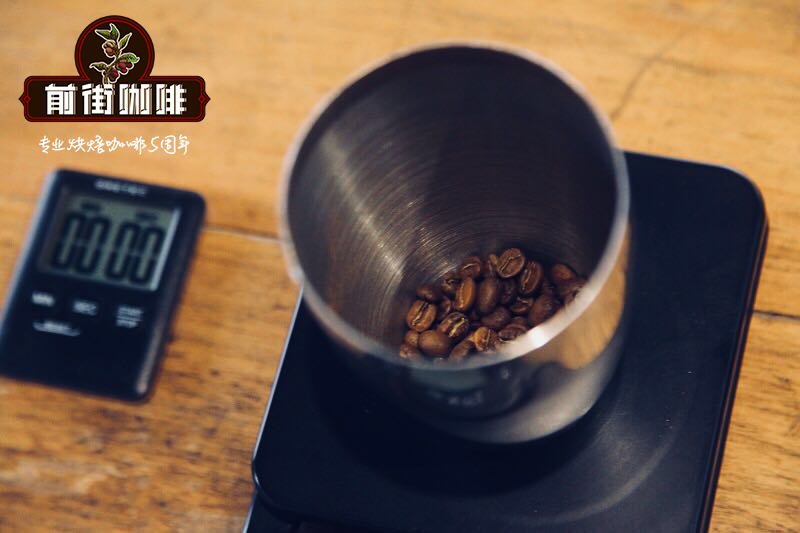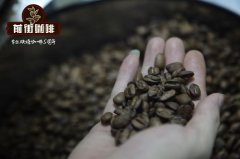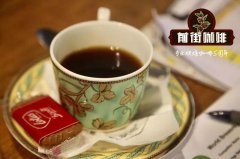Introduction to the rare and unique Indonesian Java coffee beans and their flavor

Professional coffee knowledge exchange more coffee bean information please follow the coffee workshop (Wechat official account cafe_style)
Java coffee, sometimes called Old Java, was brought to Indonesia by the Dutch in about 1696 and has been cultivated for more than 300 years. 85% of Java coffee is produced in complex volcanoes near Ijen in the east of Java. The range of heights suitable for coffee production is 3000 to 6000 feet, while Java Arabica coffee is concentrated on the Ijen plateau, at the eastern end of Java, at a height of more than 1,400 meters. After the old government (the Old Government), Java coffee was guaranteed to be at least ten years old in the tropics and has become a household name. Old Java coffee had a good reputation before 1915, and the beans naturally evaporated during the long journey to New York, giving the beans a better evaluation when they arrived in New York. Java beans have a special musty taste and a rare light brown.
Java coffee is all wet-treated. Java coffee is a special coffee, it has the rich and concentrated characteristics of Asian coffee, but it does not have the common earthy smell and damp musty smell of Sumatra, Sulawesi and Bali coffee. The acidity is delicate, with natural aromas of herbs and spices, with a hint of sorghum, sweet grain and syrup, and a hint of tobacco, sometimes with subtle herbal notes in the aftertaste.
Drinking Java coffee can best experience the artistic conception of bitterness. All coffee can feel bitter only in the first few mouthfuls, and will no longer feel bitter after the mouth has adapted to that slight bitterness. Java coffee is sweet with bitterness, and every mouthful of bitterness is clear, and the return sweet is deeper and stronger than any coffee. However, Java coffee is also unstable because of the drying part and storage conditions in the process of raw bean processing, so not all Java coffee beans can have the flavor performance described above.
At present, the best Java coffee is produced in Preanger, Cheribon, Buitenzorg and Batava. Java coffee has a mature, delicate, gentle taste, as well as an almost imperceptible spicy aroma, strong and mellow. It is more fragrant after aging, but not much in Java.
Java coffee properties: the bitter taste after fried is its main taste, the flavor is very light, and can not feel the sour taste. Mixer coffee or instant coffee is the most commonly used.
Important Notice :
前街咖啡 FrontStreet Coffee has moved to new addredd:
FrontStreet Coffee Address: 315,Donghua East Road,GuangZhou
Tel:020 38364473
- Prev

Ecuador/Galapagos Bourbon Washed Turtle Coffee Introduction
Professional coffee knowledge exchange More coffee bean information Please pay attention to coffee workshop (Weixin Official Accounts cafe_style) South America Ecuador west sea about 1000Km, located in the Pacific Ocean directly below the equator of the archipelago, Ecuador is the Galapagos Islands. The coffee produced here is rare and rarely circulated among consumers. The islands are sponsored by the United Nations Educational, Scientific and Cultural Organization
- Next

The main producing areas of Brazilian coffee introduce the characteristic flavor of Brazilian coffee beans and the flavor of Brazilian Minas coffee.
Professional coffee knowledge exchange more coffee bean information please follow the coffee workshop (Wechat official account cafe_style) Brazil (Brazil) aroma 3 minutes brightness 3.5 minutes mellow 3.5 minutes flavor 4 minutes aftertaste 4 minutes suitable for roasting: City/Full city/Espresso used as Espressode base beans can not be roasted too deep, because the producing area is low in altitude, the bean density is low, under deep roasting pot
Related
- Beginners will see the "Coffee pull flower" guide!
- What is the difference between ice blog purified milk and ordinary milk coffee?
- Why is the Philippines the largest producer of crops in Liberia?
- For coffee extraction, should the fine powder be retained?
- How does extracted espresso fill pressed powder? How much strength does it take to press the powder?
- How to make jasmine cold extract coffee? Is the jasmine + latte good?
- Will this little toy really make the coffee taste better? How does Lily Drip affect coffee extraction?
- Will the action of slapping the filter cup also affect coffee extraction?
- What's the difference between powder-to-water ratio and powder-to-liquid ratio?
- What is the Ethiopian local species? What does it have to do with Heirloom native species?

